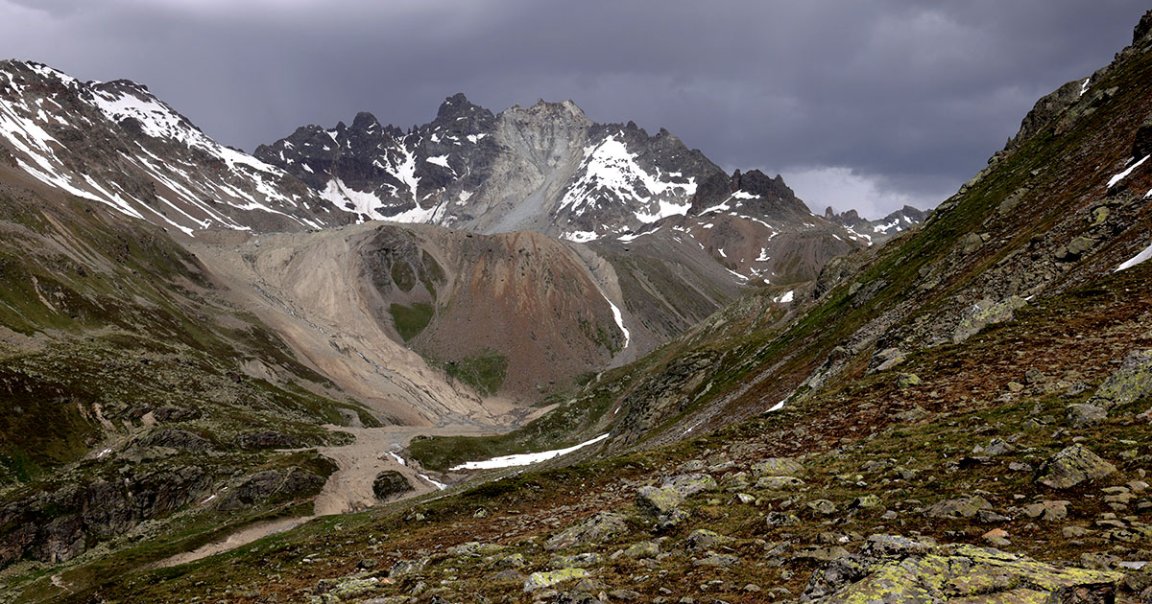
Rock Bottom
A part of a mountain’s summit in the Alps has collapsed, the likely result of permafrost thawing driven by climate change.
Dramatic footage taken earlier in June shows millions of cubic feet of stone thundering down a steep mountain landscape as one of the summits of the Fluchthorn, a mountain in the Silvretta Alps, disintegrates.
Unsurprisingly, experts say that global warming likely had a lot to do with the incident, Live Science reports, with rising temperatures causing frozen ground to become unstable over time — a warning sign that mountainous landscapes are being permanently reshaped as a result of how civilization is shifting the planet’s climate.

Impermafrost
The incident shortened the peak of the Fluchthorn by a stunning 330 feet, with debris piling into the adjacent valley. That means the mountain is now officially 60 feet shorter, since its middle peak is now its highest point at 11,145 feet.
As Live Science points out, most mountain peaks above roughly 8,000 feet are covered in permafrost, which help them stay grouped together. As soon as this material melts, though, these peaks can collapse.
Climate change is indeed causing atmospheric temperatures to rise at an alarming rate in the Alps, causing glaciers to vanish and permafrost to melt.
“This mountain peak has been frozen for probably thousands of years,” Jan-Christoph Otto, a geologist at the University of Salzburg. told Live Science, adding that “the mountain peak failure at Fluchthorn is most likely the result of extreme temperatures last summer or fall.”
And we should expect more mountain peaks to succumb to the steadily increasing temperatures.
“Considering the ongoing temperature increase in the Alps, more events are probable,” Otto told Live Science.
More on climate change: Global Warming Is Worse Than We Thought, AI Tells Scientists